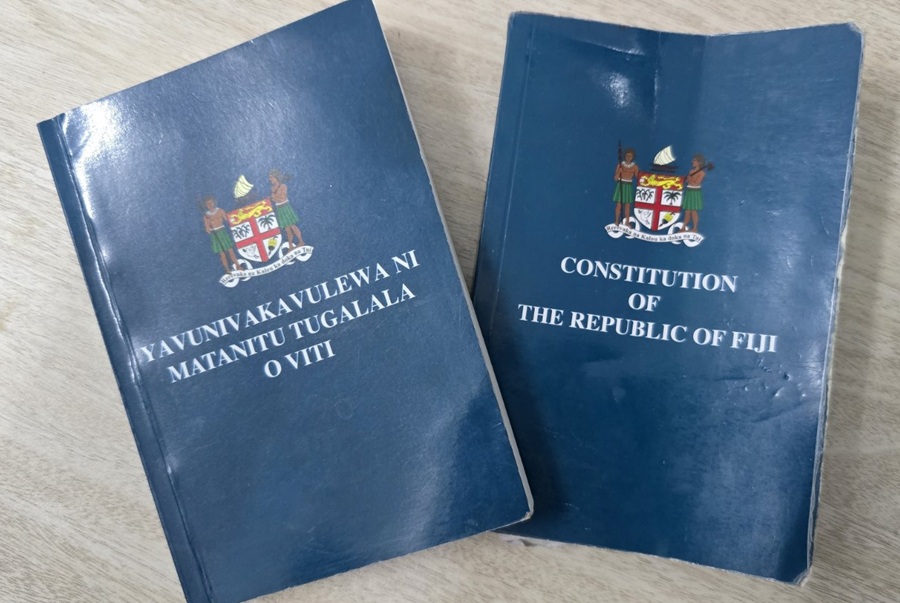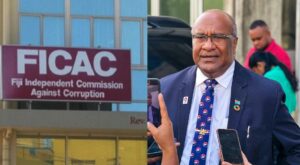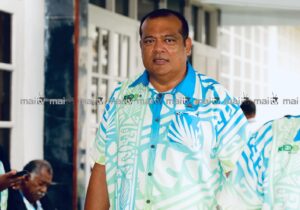Fiji’s Coalition Government intends to involve the public extensively in any proposed amendments to the 2013 Constitution with Minister for Economy Professor Biman Prasad stating that it will not impose nor dictate changes without nationwide input.
Speaking at the Fiji Commerce and Employers Federation (FCEF) Update of the Economy event at the Grand Pacific Hotel in Suva yesterday, Professor Biman said that, unlike the process followed in the adoption of the 2013 Constitution, the amendment procedure would be consultative.
His remarks follow concerns raised over the motives, timing, and process of constitutional amendments, urging an objective, scholarly approach over political influence and personal interests.
“People have been asking us, what are the changes that the government intends to bring about, I can tell you that as government, we do not want to dictate or impose what we want in the Constitution,” Professor Biman said. “We need to understand that the Constitution has implications on everybody and almost every aspect of national governance and public policy, so all stakeholders in our view should have an opportunity within the process, to express and formulate or help the government formulate a view on what a new Constitution or an amended constitution should be.”
He further reassured the public that the review was being undertaken to improve the Constitution, not to serve any particular agenda.
“We will need your participation—not only in the review process but also in the work of the Truth and Reconciliation Commission, which will reset the platform for lasting social, economic, and political advancement of our nation.”
Proposed Amendments and Justifications
In recent weeks, the government has begun preparatory work on the constitutional review following the cabinet’s approval to table a Bill that seeks to amend sections 159 (s159(2)(c)) and 160 of the 2013 Constitution. These sections set out the threshold requirements for amendments.
At a recent informal talanoa session with stakeholders in Suva, officers from the Attorney General’s Office outlined the proposed changes, which they said are being driven by public interest, concerns over the rigidity of amendment provisions, and the need to eliminate ambiguity. Concerns about the concentration of power in the Prime Minister and Attorney General’s offices, as well as broad limitations on the Bill of Rights were also discussed.
The amendments, scheduled to be tabled in Parliament’s first proper sitting this year, propose the following key changes:
- Removing the absolute prohibition on amending Chapter 11
- Deleting section 159(2)(c)
- Modifying section 160, replacing the “three-quarters” threshold with a “two-thirds” threshold and changing “registered voters” to “votes of registered voters”
Officers of the AG’s office said that the changes reflect the difficulty of securing the supermajority threshold currently required. Given Fiji’s political landscape, achieving three-quarters of parliamentary approval under section 159 has proven impractical. The current requirement for a three-quarters turnout of registered voters in a referendum is seen as unfeasible, especially considering the low voter turnout in recent elections.
Stakeholder Reactions
While the government has initiated the review process, various stakeholders have expressed their perspectives on how it should proceed.
Legal experts from the University of Fiji’s JDP School of Law highlighted that constitutional amendments must strictly follow due process. Dean and Vice-Chancellor Professor Shaista Shameem said that changes must adhere to the amendment procedures outlined in Chapter 11 of the Constitution.
“The path to amendment is not that difficult,” the University of Fiji’s submission stated. It highlighted the importance of following three readings, parliamentary debate, and a referendum, warning that bypassing these steps could undermine democratic legitimacy.
The Fiji Women’s Rights Movement (FWRM) called for an expert-led, transparent consultation process, highlighting the importance of civic education before any formal discussions. The group also recommended that discussions be conducted in multiple languages, including sign language, to ensure wider participation and the importance of allowing sufficient time for nationwide discussions.
Meanwhile, Dialogue Fiji CEO Nilesh Lal acknowledged that while Fiji’s amendment thresholds are high, they serve to protect minority interests and are not necessarily the most restrictive in the world.
The Bill to amend the amendment provisions of the 2013 Constitution is scheduled to be tabled in Parliament’s March sitting.
Amendment Threshold
Under Chapter 11 of the 2013 Constitution, amendments require three parliamentary readings, with at least 75% approval in the second and third readings, spaced 30 days apart. With 38 of 55 seats, the Coalition Government needs at least 41 votes to meet the threshold before it is put to a nationwide referendum and must then secure 75% voter approval for the amendment to take effect.
Related Articles:
Bill To Amend 2013 Constitution to be Tabled in Parliament
GCC Discusses Legal Reform and Calls for Review of 2013 Constitution
Fiji’s PM Rabuka Calls for Constitutional Reform as Electoral Landscape Shifts
Fiji 2013 Constitution bias, and not unifying, warrants urgent review: Naupoto









